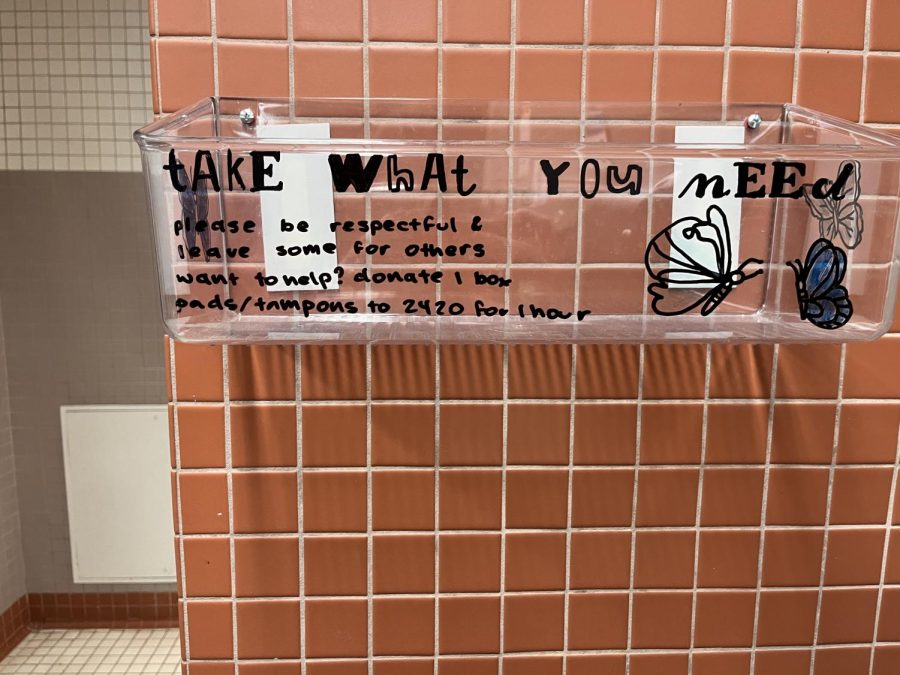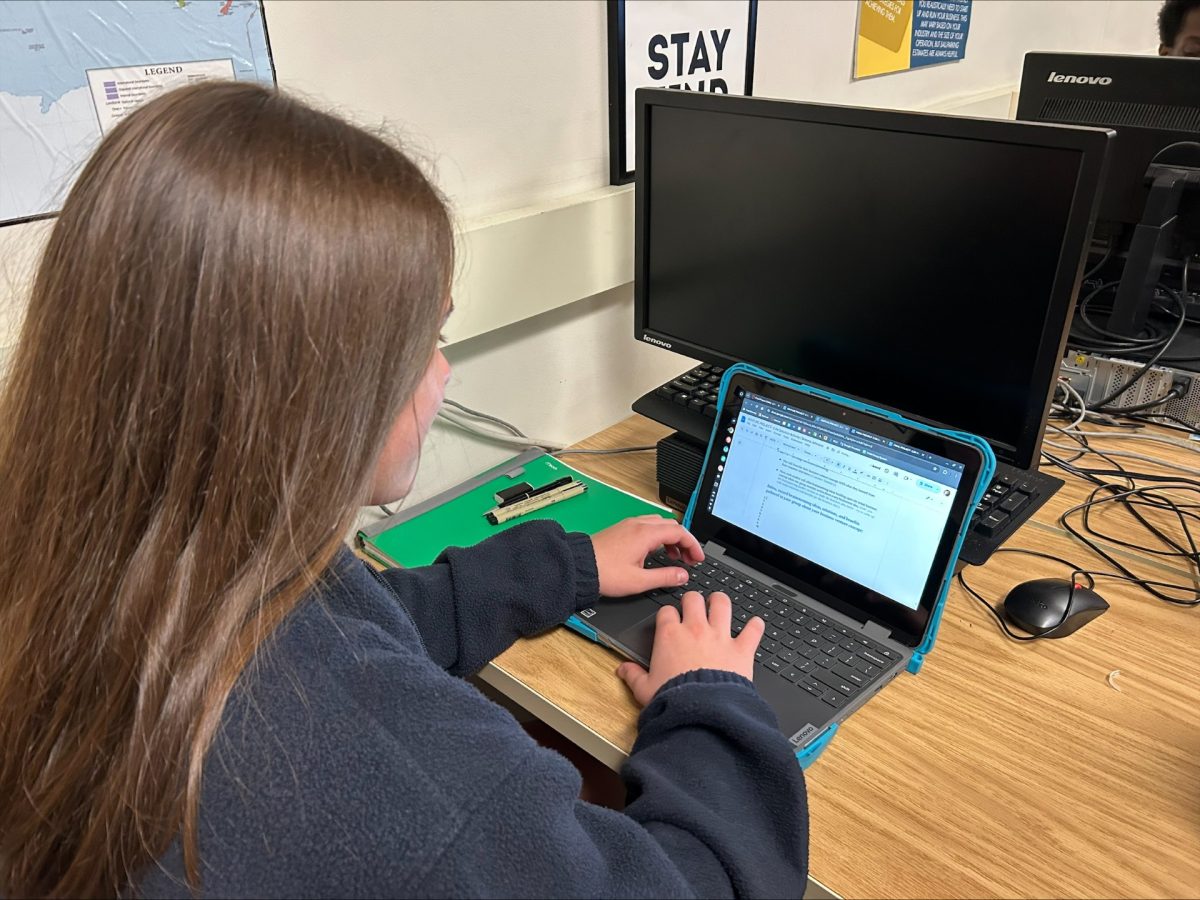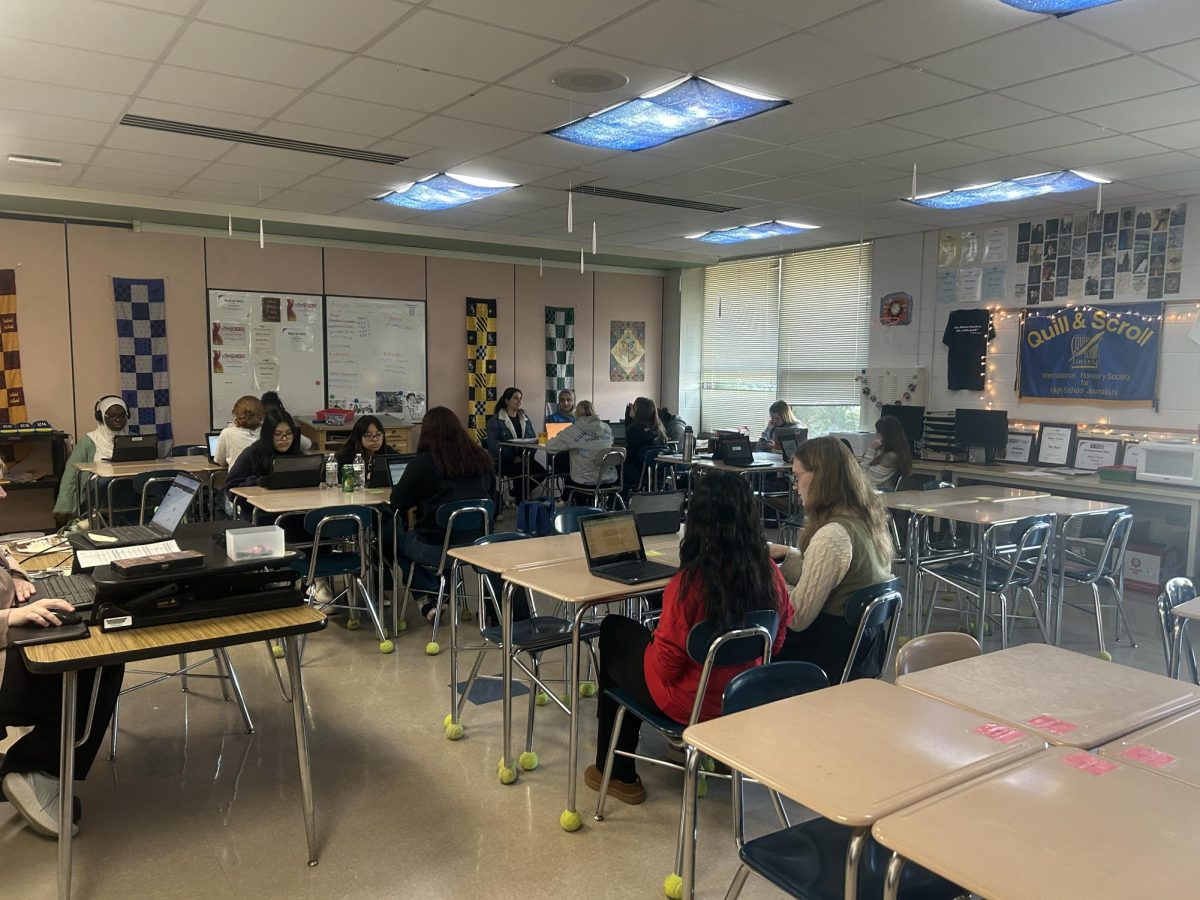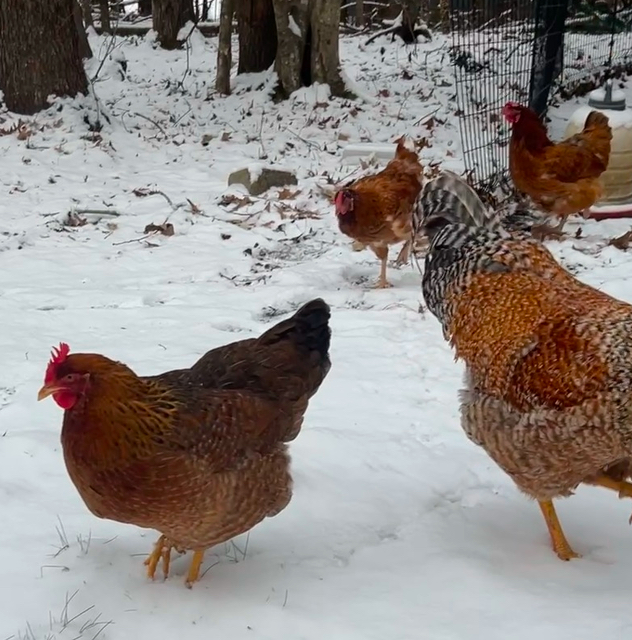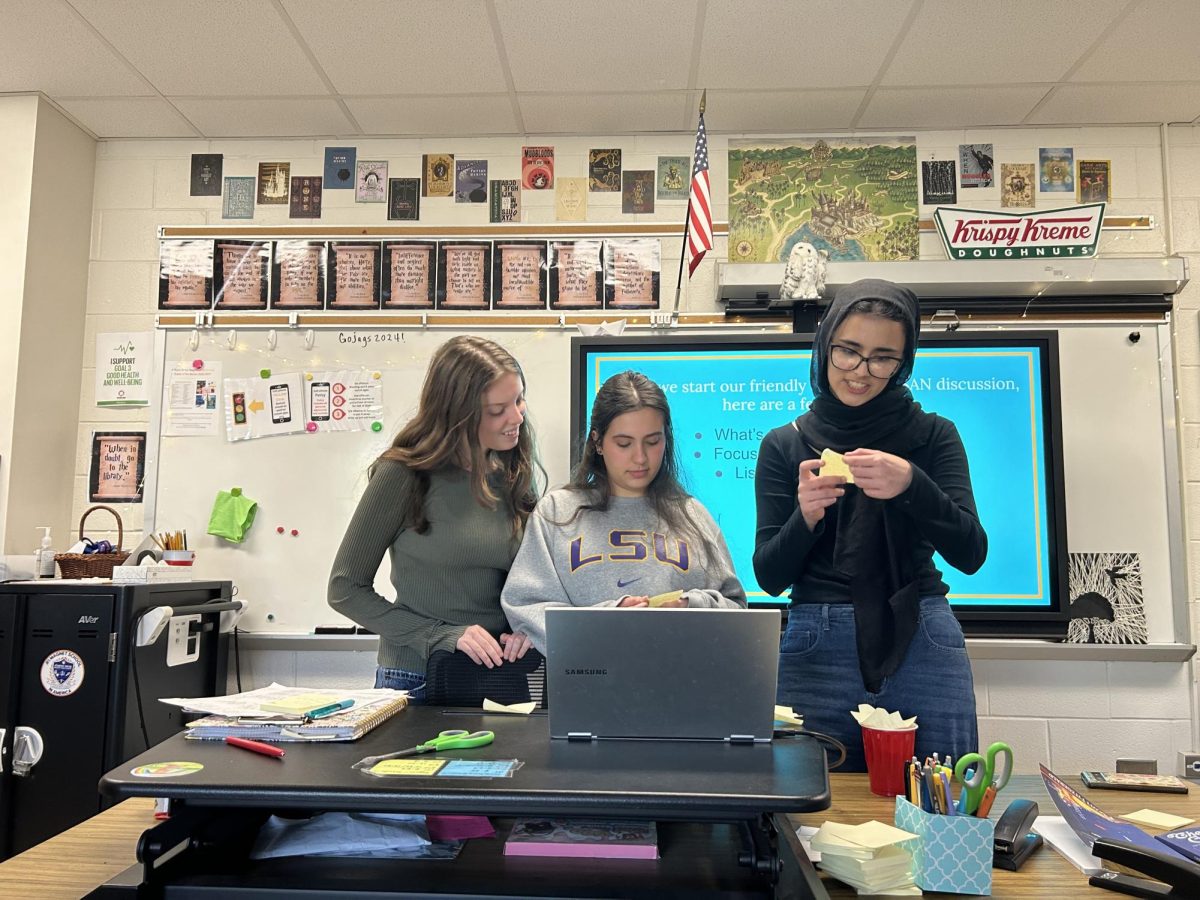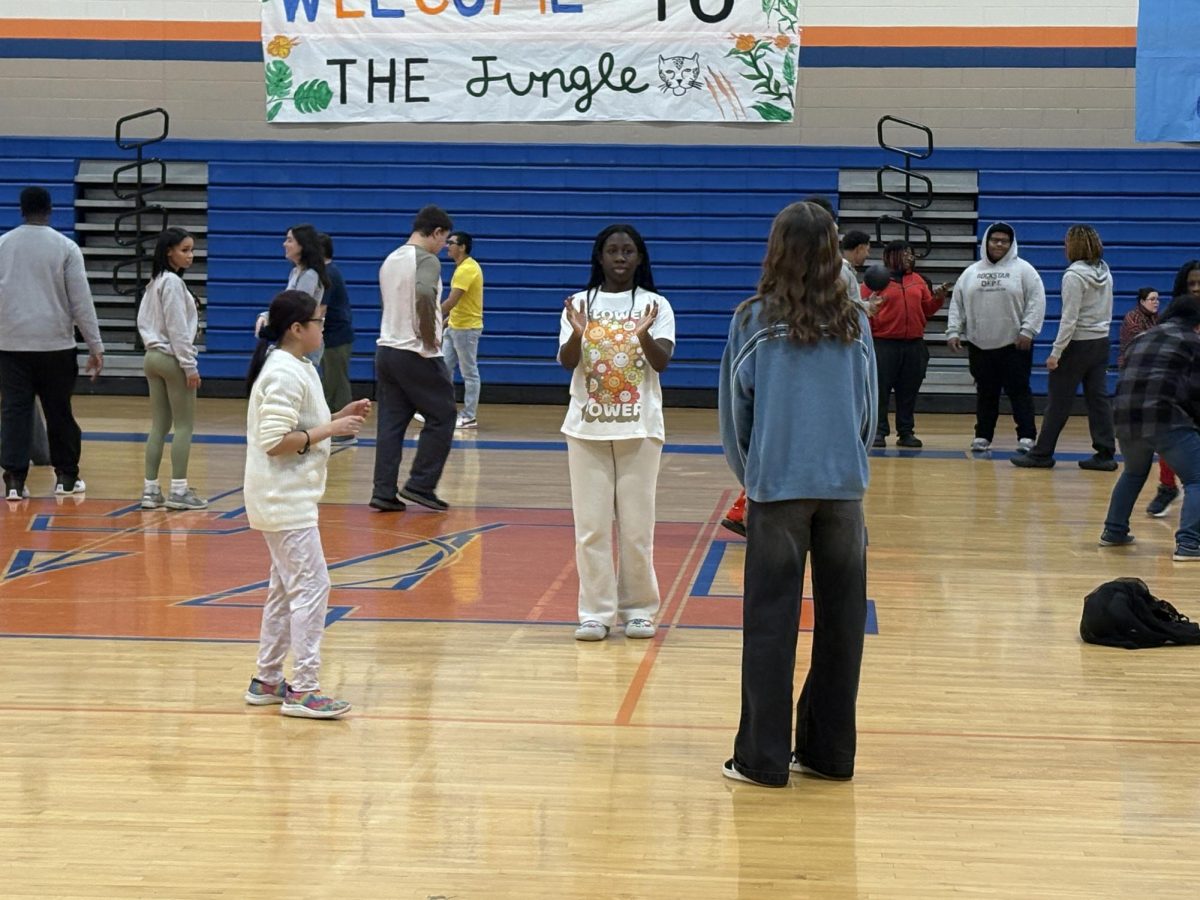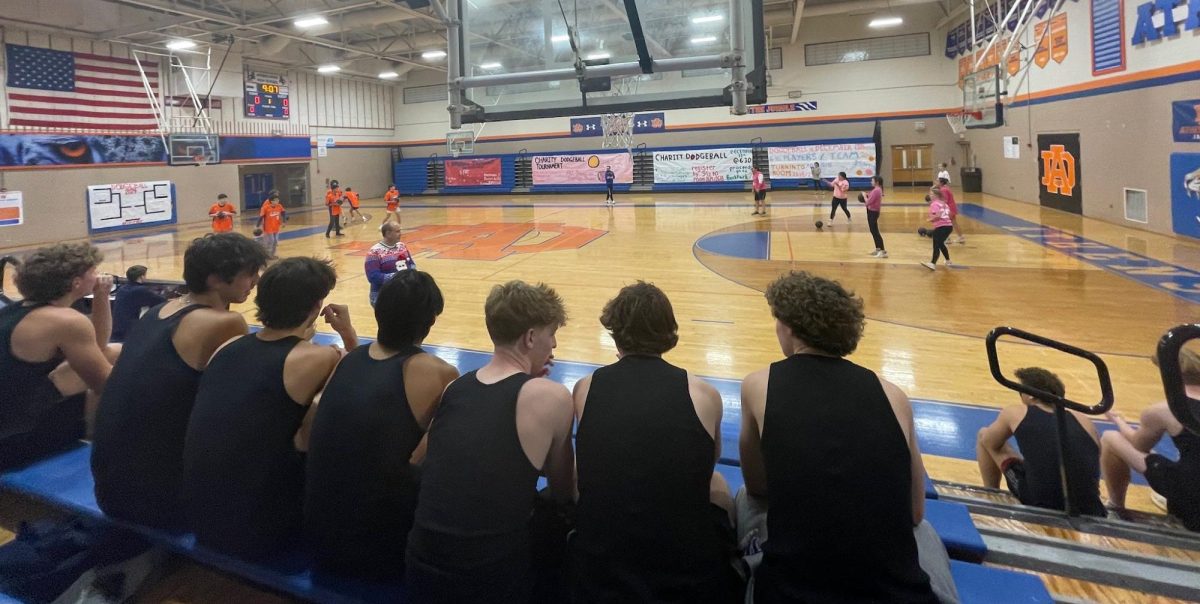Period poverty affects 16.9 million people in the United States who menstruate. On average, a person who menstruates spends around 20 dollars on supplies every time they have a menstrual cycle, this can add up to around 18,000 dollars over their lifetime.
“Ultimately what this does is it causes a bigger wealth gap. Even if it seems small, all of those different things add up. It can cause a negative impact on women’s financial status especially when you think about pay discrepancies. Women are kind of getting the short end of the stick here,” said Kaitlyn Brown, an English teacher at Athens Drive high school.
Period poverty is the struggle many low-income women, transgender, and non-binary individuals face while trying to afford menstrual products. Period poverty is an issue that can be found in places all over the United States; in Raleigh, you can find it within your everyday life. It can be found in students, teachers, and even in your own home. Being able to buy and afford period products is a luxury. In America, 49% of individuals who get a menstrual cycle ages 11-29 missed an entire day of school due to their period at some point. ‘‘I’ve struggled with being able to get the products that I need,’’ said an anonymous student at Athens.
“I didn’t choose to be female, so there are parts of being female that we end up paying more for, things that most men don’t have to pay for. It ultimately makes me spend more money on products that are supposed to be tailored for my body. When you’re talking about issues of socioeconomic status and wealth disparities women, especially women from lower income backgrounds are being forced to choose between products that they need or other necessities like food,” said Brown.
Whether an individual knows it or not, or is able to see it, period poverty is all around them. Individuals who are homeless also struggle majorly with their menstrual cycle, whether that’s finding the period products they need, finding a place to change or even finding a place to take a shower can be difficult. The products that are found at a dollar store aren’t good quality, or even reliable, leading people to buy the more expensive brands for “better quality”.
“As a woman, it already takes us longer to accumulate normal everyday funds that men have, so paying for period products makes it even harder. Having to budget for period products is extremely hard. Sometimes I have to choose between buying period products and buying groceries for the week,” said Anné Johnson, a math teacher at Athens.
Many women struggle with the idea of “Am I going to get groceries, or get period products this week?”. Pads and tampons have become incredibly expensive, and even the companies, programs and groups who offer them for free are lacking in resources for that very reason. Many of the nationwide programs can include, The Healing Hands Project, Helping Women Period and The Homeless Period Project. A menstrual cycle is not something people choose to have and is an uncontrollable decision that the body makes. Women are not the only people who experience it either, transgender and non-binary individuals often struggle with the issues of period poverty too. Menstruation is not a way to draw the “line” for womanhood. If a person struggles with purchasing menstrual products, reusable options could be good for them. Reusable pads and tampons can be healthier than single use pads, you can support a small business, they are still just as sanitary if not more than average products and they’re more reliable to not leak.
“ You see period poverty in everyday life, from kids not having what they need in order to come to school. Some of my students started Rhizome and they asked me if I would be the adviser. They wanted to help the community, and do some positive things at Athens Drive, to make it a better place to be,” said Patricia Hornick, an English teacher at Athens.

